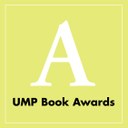"School was a place that devalued who we are as Indigenous people."
“School was a place that devalued who we are as Indigenous people,” says Noelani Goodyear-Ka‘ōpua. These were institutions — at least since white settlers deposed the Indigenous government in the late 19th century — that Native students “tolerated and survived…experienced more as a carceral space than a place of learning.”
So she and her community decided to start their own.
Founded in 1999, the Hālau Kū Māna (HKM) Public Charter School in Honolulu enacts a host of educational practices that Goodyear-Ka‘ōpua labels “sovereign pedagogies.” From the “land-based literacies” of their Papa Lo’i agricultural project to Olelo language classes, HKM signaled a “radical departure from the fences, walls, and bell schedules that kept young people cut off from their ‘aina and other storehouses of ancestral knowledge.”
Now an associate professor of political science at the University of Hawai’i at Mānoa, Goodyear-Ka‘ōpua tells the inspiring story of HKM in The Seeds We Planted: Portraits of a Native Hawaiian Charter School (University of Minnesota Press, 2013). No simple tale of triumph, Goodyear-Ka‘ōpua explores the tensions and contradictions of fostering sovereign education in a settler colonial context and appropriating elements of the neocolonial/neoliberal charter school movement for anti-colonial ends.
By: Andrew Bard Epstein
Story Date: 2013-07-08T00:00:00



